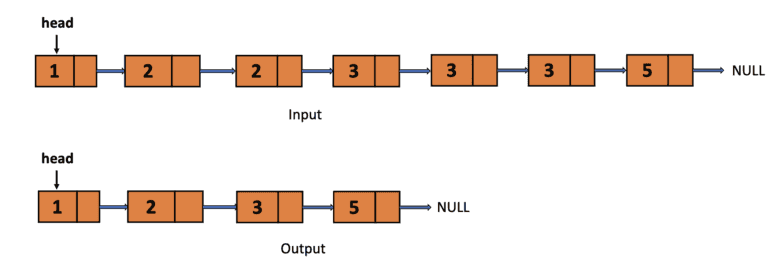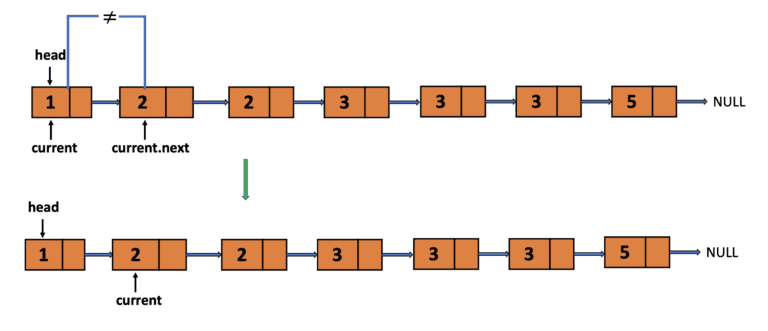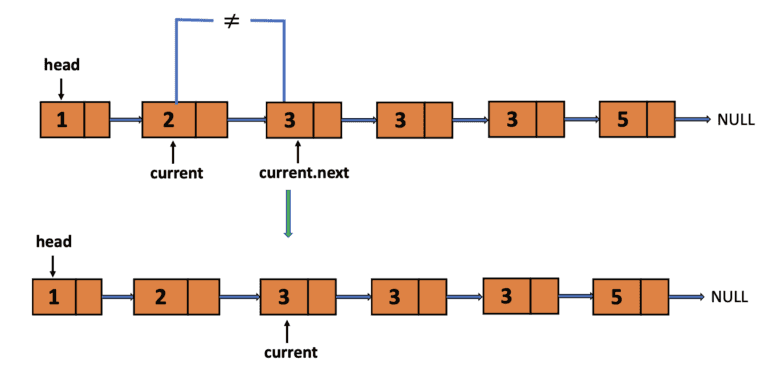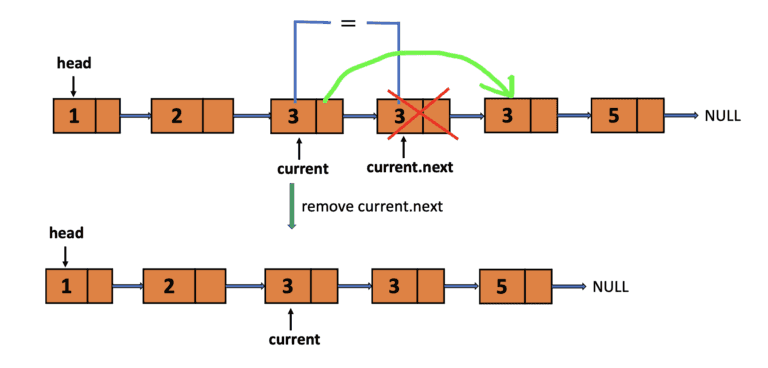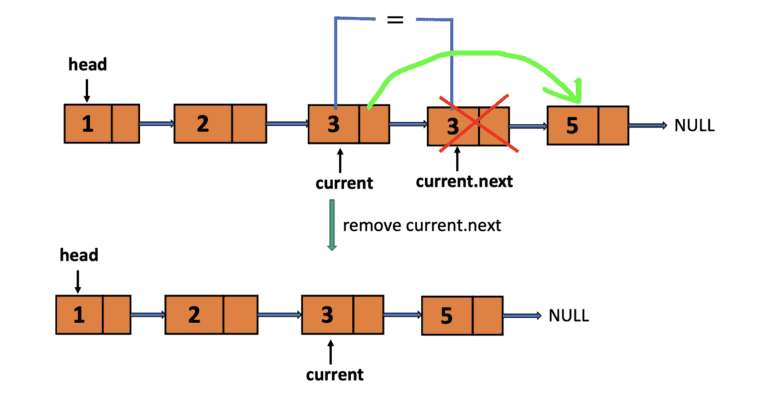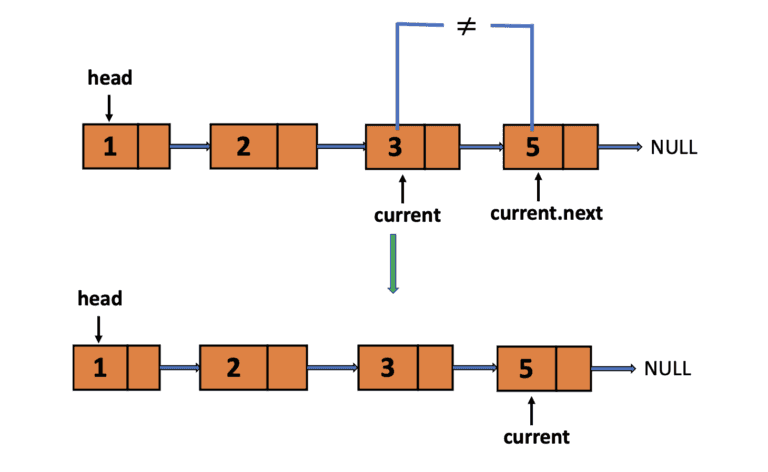
Remove Duplicates From Sorted List
Problem Statement
1Problem Description :2Given a sorted linked list, delete all duplicates such that each element appear only once34Input:5head of the sorted singly linked list67Output:8Return head of the linked list after removing all duplicates.
1Example 1 :23 Input : 1 -> 1 -> 245 Output: 1 -> 267 Explanation :8 As per input list value 1 appeared two times9 So duplicate node which has value 1 has to be deleted
1Example 2 :23 Input : 1 -> 2 -> 2 -> 3 -> 3 -> 3 -> 545 Output: 1 -> 2 -> 3 -> 567 Explanation : As per input values 2 and 3 appeared more that 1 time.
Solution Approaches
By Traversing the list
Prerequisite
Algorithm
1Input : head pointer of the sorted singly linked list23Step 0: Initialize current pointer which points to head of the linked list45Step 1: If current and current.next are not null67Step 2: if current and current.next holds same value,8 remove current.next by updating current.next = current.next.next910Step 3: else just move current node by current = current.next1112Step 4: Repeat steps 1 to 3 until we reach end of the linked list1314Output : Sorted linked list without duplicate node values.
Example Dry Run
Input : 1 -> 2 -> 2 -> 3 -> 3 -> 3 -> 5
Iteration 1:
current and current.next are not null
As current.val ≠ current.next.val, move forward by updating
current = current.next
Iteration 2 :
current and current.next are not null
As current.val = current.next.val, remove current.next by updating
current.next = current.next.next
Iteration 3 :
- current and current.next are not null
- As current.val ≠ current.next.val => current = current.next
Iteration 4 :
- current and current.next are not null
- As current.val = current.next.val => current.next = current.next.next
Iteration 5 :
- current and current.next are not null
- As current.val = current.next.val => current.next = current.next.next
Iteration 6 :
- current and current.next are not null
- As current.val ≠ current.next.val => current = current.next
Output : 1 -> 2 -> 3 -> 5 -> NULL
Code Implementation
- Java
- Python
- Cpp
1public class RemoveDuplicatesInSortedLinkedList {23 // list node class4 static class ListNode {5 int val;6 ListNode next;78 ListNode(int val){9 this.val = val;10 }11 }1213 public ListNode removeDuplicates(ListNode head) {14 // Base case : If head value is null, return null15 if(head == null) {16 return null;17 }1819 // Initialize current pointer at head20 ListNode current = head;2122 // Iterate over list and23 // compare current node value with next node value24 while (current.next != null) {25 // if current node value is equal to next node value26 // delete next node by updating current.next to current.next.next27 if(current.val == current.next.val) {28 current.next = current.next.next;29 }30 // if current node value is not equal31 // just increment current pointer to proceed further32 else {33 current = current.next;34 }35 }36 return head;37 }3839 /* Helper method to construct40 linkedList by giving array of values41 */42 private ListNode constructList(int[] array) {43 // create dummy head node, this helps to avoid null checks44 ListNode head = new ListNode(-1);45 ListNode current = head;464748 for(int i=0 ; i<array.length; i++){49 current.next = new ListNode(array[i]);50 current = current.next;51 }52 // as head node pointed to some dummy node ,53 // head.next is our actual head of the linked list54 return head.next;55 }5657 // Helper method to print given linked list58 private void print(ListNode head) {59 StringBuilder sb = new StringBuilder();6061 while(head != null) {62 sb.append(head.val +" -> ");63 head = head.next;64 }65 sb.append("NULL");66 System.out.println(sb.toString());67 }6869 // Driver Method70 public static void main(String[] args) {71 RemoveDuplicatesInSortedLinkedList obj =72 new RemoveDuplicatesInSortedLinkedList();73 int[] a = {1, 1, 1, 3, 7};74 ListNode head = obj.constructList(a);75 ListNode head1New = obj.removeDuplicates(head);76 obj.print(head1New);77 }7879}
Complexity Analysis
- Time Complexity : O(n) where n is the length of the given linked list
- Space Complexity : O(1)
